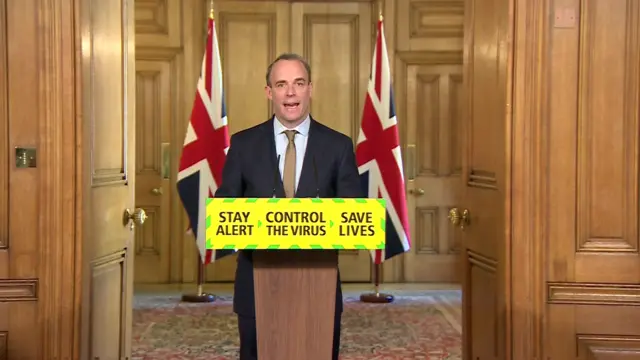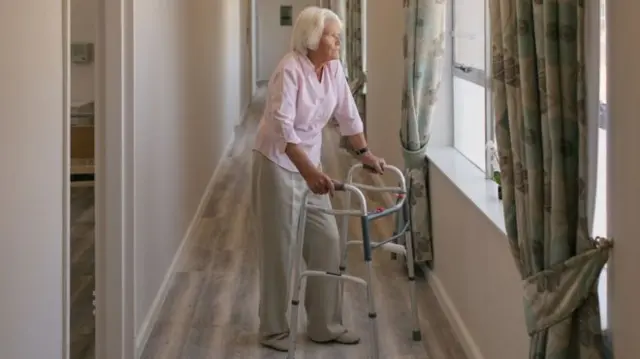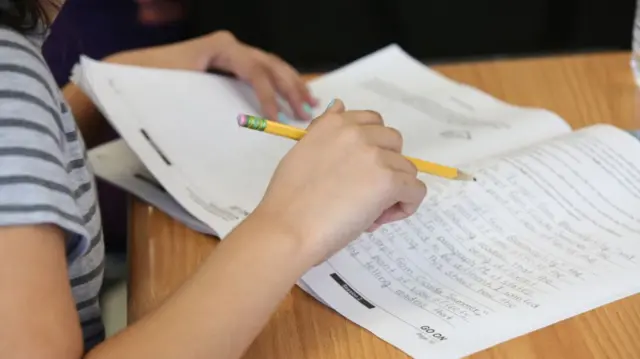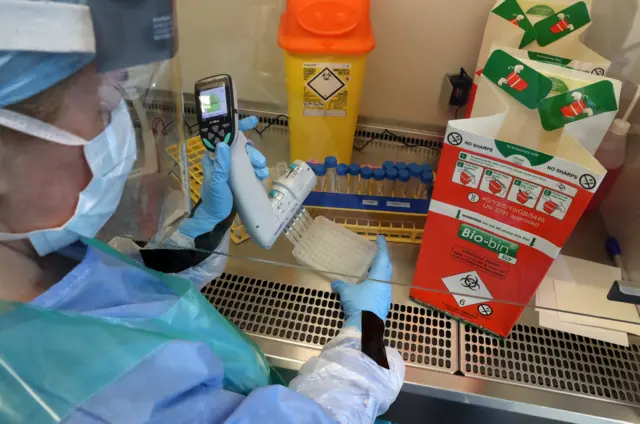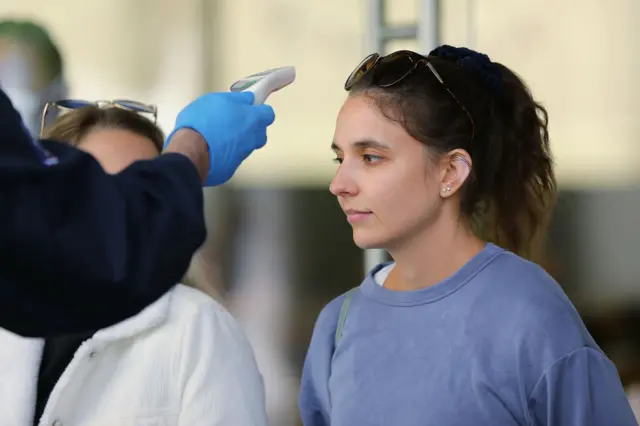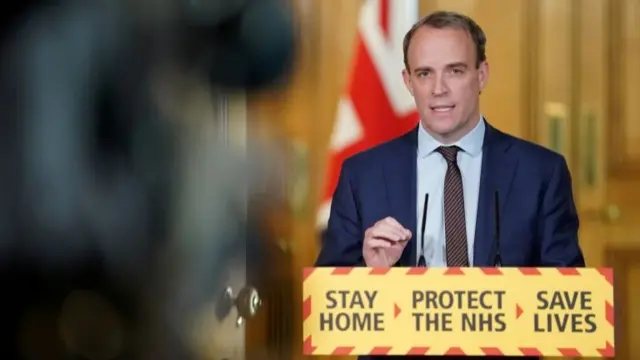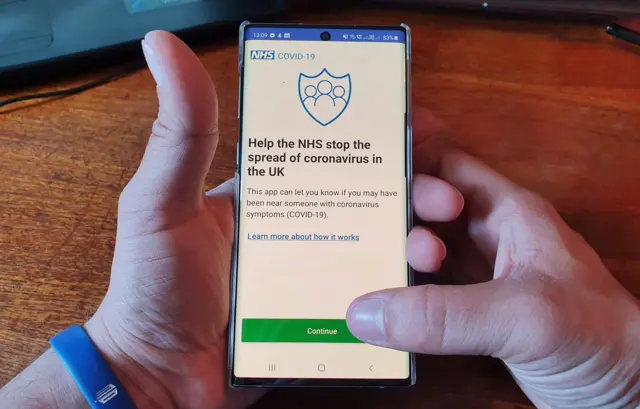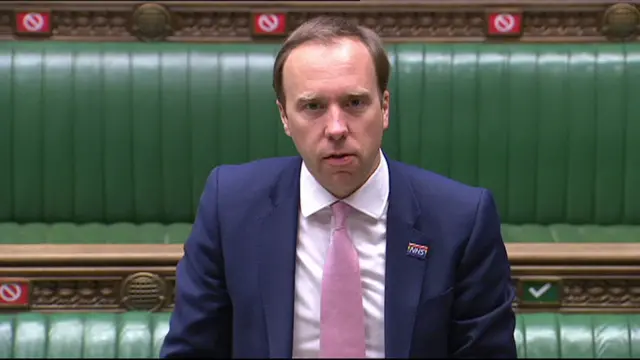'Sustained decline' in new UK casespublished at 17:18 BST 18 May 2020
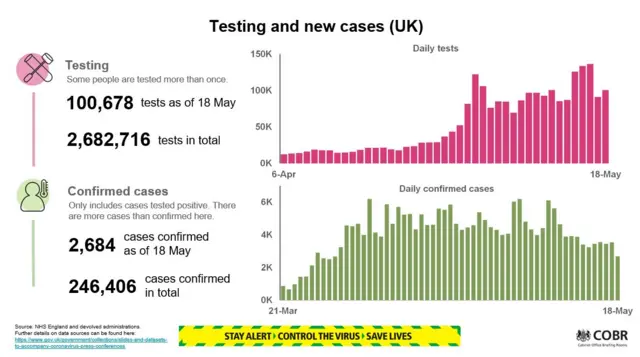 Image source, Downing Street
Image source, Downing StreetProfessor Jonathan Van-Tam, deputy chief medical officer for England, gives an update on the latest mobility data from Apple Maps.
He says there has been a "gradual" increase in searches for walking and driving directions, but public transport searches are "essentially flat".
Unveiling the slide above, he also says there is evidence of a "definite sustained decline" in new confirmed cases in the UK.
He also says the decline in the number of deaths after a positive test is "consistent and solid".
